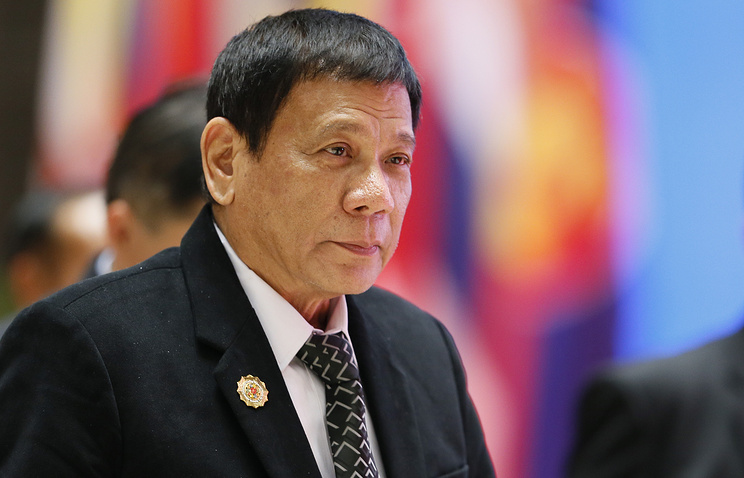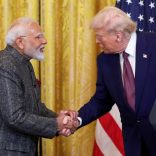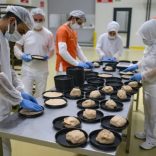US retailers brace for impact as Trump's 100% China tariffs loom (Oct 13)
‘People were slaughtered like chickens in Davao’ on Rodrigo Duterte’s orders

EPA / Philipinnes President Rodrigo Duterte
Rodrigo Duterte shot dead a justice department employee and ordered the murder of opponents, a former death squad member told parliament on Thursday, in explosive allegations against the Philippine president.
The assassin told a senate hearing that he and a group of police officers and former communist rebels killed about 1,000 people over 25 years on Duterte’s orders — one of them fed alive to a crocodile.
Many of the others were garroted, burnt, quartered and then buried at a quarry owned by a police officer who was a member of the death squad. Others were dumped at sea to be eaten by fish.
Edgar Matobato made the allegations before the senate, which is investigating alleged extrajudicial killings in Duterte’s anticrime crackdown that police say has left 3,140 people dead in Duterte’s first 72 days in office.
The then head of the Commission on Human Rights, senator Leila de Lima, told the inquiry Matobato had surrendered to the investigatory body in 2009 and had until recently been in a witness protection scheme.
Duterte’s spokesperson said the allegations had already been investigated without charges being filed, while his son, Paolo Duterte, called the testimony “mere hearsay” of “a madman”.
Matobato said that in 1993, he and other members of the death squad were on a mission when they approached a Davao road blocked by the vehicle of an agent from the justice department’s National Bureau of Investigation.
A confrontation led to a shoot-out that left the agent wounded and out of bullets. Rodrigo Duterte, the Davao mayor at the time, then arrived on the scene, Matobato said.
“Mayor Duterte was the one who finished him off. Jamisola (the justice department official) was still alive when he (Duterte) arrived. He emptied two Uzi (submachine gun) magazines on him,” he said.
“I didn’t kill anyone unless ordered by Charlie Mike,” Matobato said, telling the senate it was the death squad’s coded reference to Duterte, using the Nato phonetic alphabet. Residents used to refer to Duterte as CM, standing for city mayor.
Matobato’s testimony fleshed out in gruesome detail for the first time long-running allegations Duterte was behind a death squad that killed more than a 1,000 people in Davao, where he was mayor for most of the past two decades.
“Our job was to kill criminals, rapists, pushers and snatchers. That’s what we did. We killed people almost on a daily basis,” said Matobato.
“The people of Davao were being slaughtered like chicken,” he said, adding the death squad killed mainly criminal suspects and personal enemies of the Duterte family between 1988 and 2013.
Duterte’s spokesperson, Martin Andanar, said he doubted that the then mayor could have ordered the killing of 1,000 people.
“I don’t think he’s capable of giving a directive like that. The Commission on Human Rights already investigated this a long time ago and no charges were filed,” he said. Another spokesperson, Ernesto Abella, said the allegations needed to be properly scrutinised.
“Whatever testimonies, statements that the chairperson (of the senate committee) are saying, we will have to have a proper investigation regarding that.” Duterte, who took office more than two months ago, won May elections in a landslide on a promise to kill thousands of criminals.
Matobato said the death squad received orders either directly from Duterte or from active-duty Davao police officers assigned to the mayor’s office.
Many of the victims were abducted by members of the group who introduced themselves as police officers, then taken to a local quarry where they were killed and buried, he added.
“The officers told us ordinary killings won’t do. They are sadists,” he said, describing how the victims were strangled. “Then we’d remove their clothes, burn the bodies and chop them up,” Matobato said, adding that he had personally killed “about 50” people.
The bodies of other victims were disembowelled and dropped at sea, while others were left on Davao streets, their hands made to clutch a handgun, he added.
One of the victims was a foreign man suspected of being an “international terrorist”, another was the boyfriend of Duterte’s sister.
One was Davao broadcaster Jun Pala, who constantly criticised Duterte, four were bodyguards of a local rival, while two were enemies of Duterte’s son Paolo, who is now Davao vice-mayor, Matobato said.
In response, Paolo Duterte called Matobato’s testimony “mere hearsay”.
“I will not dignify with an answer the accusations of a madman.” Rodrigo Duterte earlier denied ordering Pala’s 2003 Davao ambush but described him as an extortionist and a “rotten son of a bitch” who “deserved it”. The comments were roundly denounced by the UN and rights watchdogs.
De Lima said the rights body later dug up several skeletons of unidentified people at the Davao quarry.
She said the senate committee’s findings would be referred to the Philippine ombudsman, although she acknowledged sitting presidents were immune from prosecution and could only be removed through impeachment.
Matobato said the death squad “tortured” him when he asked to leave the group in 2013, prompting him to surrender to the justice department’s witness protection programme.
However, Matobato said he left the programme and went into hiding when Duterte won the presidency.
Asked why he left the death squad, he replied: “I am bothered by my conscience.”













Leave a Reply
Be the First to Comment!
You must be logged in to post a comment.
You must be logged in to post a comment.